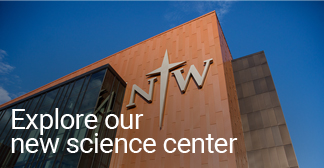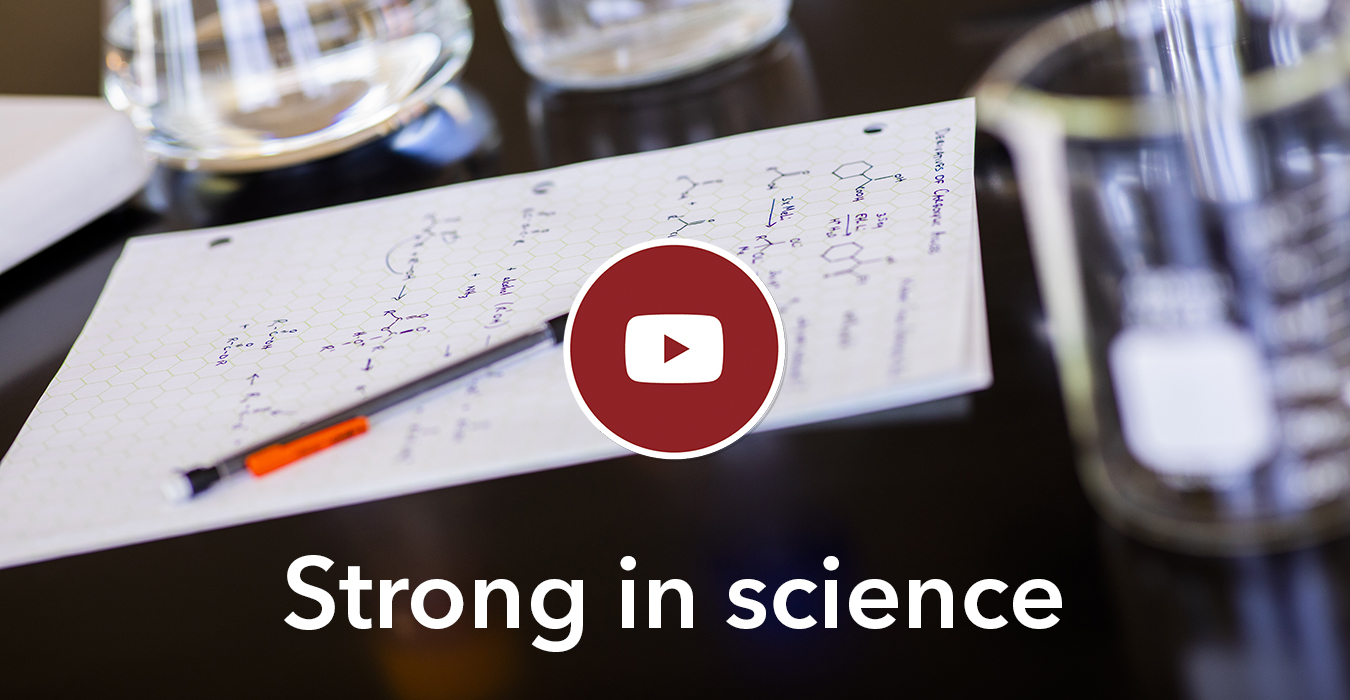Pharmacists play an important role in our nation’s health care delivery system. A career in pharmacy offers a broad range of opportunities, including community pharmacy, hospital pharmacy, pharmaceutical sales, and pharmaceutical research and development.
Colleges of pharmacy typically require two years of pre-pharmacy followed by a four-year professional program (2+4). The programs of different pharmacy schools may be quite different, and it is therefore essential that pre-pharmacy students familiarize themselves with the curricular requirements of the specific college of pharmacy to which they intend to transfer soon after they enroll at Northwestern College. The courses listed below represent a typical program.
Recommended courses
Humanities, behavioral and social science electives: 10 credits
BIO 115SN - General Biology: Molecular and Cellular Biology
(4 credits) (NWCore option under Science and the Natural World) An introduction to molecular and cellular biology, with an examination of the processes common to living organisms and an introduction to the diversity of life, emphasizing unicellular organisms. This introduction will provide students with a basic understanding of macromolecules, cell structure and function, respiration and photosynthesis, the cell cycle, meiosis, genetics, mechanisms of evolutionary change, and Christian perspectives on evolutionary biology. Prerequisite: Combined Math + Science ACT of at least 44, sophomore standing, or permission of instructor.Note: Three lectures and 3 hours of laboratory work per week. A fee is associated with this course.
BIO 116 - General Biology: Ecology and Organismal Biology
(4 credits) An introduction to organismal biology and ecology. Structure and function of representatives from the plant and animal kingdom are emphasized. In addition, students will be introduced to basic ecological concepts and Christian perspectives on stewardship.Note: Three lectures and 3 hours of laboratory work per week. A fee is associated with this course.
BIO 203 - Microbiology
(4 credits) A study of the morphology and physiology of microorganisms with special emphasis on bacteria and viruses. Those organisms that have an economic or medical importance will be highlighted, and basic laboratory techniques will be stressed. Prerequisites: BIO115SN or BIO122 and CHE102 or CHE108SN or CHE112.Note: Includes 3 hours of lab per week. A fee is associated with this course.
BIO 221 - Human Anatomy
(4 credits) A study of the gross structure of the systems of the human body. Prerequisite: BIO102SN, 115 or permission of instructor.Note: Includes 3 hours of lab per week. A fee is associated with this course.
BIO 222 - Human Physiology
(4 credits) A study of the mechanisms by which the human body functions. Emphasis will be given to nerve and muscle function, and thereafter to hormonal control and the integrated systems that allow for respiratory, digestive, excretory and reproductive activities. Prerequisites: BIO102SN or 115 and CHE101SN, 102 or CHE111, 112 or permission of instructor.Note: Includes 3 hours of lab per week. A fee is associated with this course.
CHE 111 - General Chemistry
(4 credits) An introductory course in chemistry that emphasizes physical and inorganic concepts, problems and calculations. Topics include chemical reactions, stoichiometry, properties of gases, thermochemistry, theories of atomic structure, and chemical bonding. The general chemistry sequence (Chemistry 111 and Chemistry 112) is recommended for students with good math / science preparations who intend to proceed to advanced courses in chemistry, the biological sciences or engineering. Prerequisites: high school chemistry and ACT math score of at least 24 (SAT 570 or above). Note: Three lectures and one three-hour laboratory period per week. A fee is associated with this course.
CHE 112 - General Chemistry
(4 credits) A continuation of Chemistry 111. Topics covered include kinetics, thermodynamics, chemical equilibria, acid-base chemistry and nuclear chemistry. Prerequisite: CHE111 or consent of the instructor.Note: Three lectures and one three-hour laboratory period per week. A fee is associated with this course.
CHE 321 - Organic Chemistry
(4 credits) The study of carbon compounds and their functional groups, including nomenclature, synthesis, reactions, structures, mechanisms and spectroscopic analysis. Prerequisites: CHE102 or 112 or permission of instructor.Note: Three lectures and one three-hour laboratory period per week. A fee is associated with this course.
CHE 322 - Organic Chemistry
(4 credits) A continuation of the study of carbon compounds and their functional groups, including nomenclature, synthesis, reactions, structures, mechanisms and spectroscopic analysis.Prerequisite: CHE321.
ECO 213 - Principles of Microeconomics
(4 credits) Microeconomics deals with price determination and how the price system functions. Supply and demand, output, competition, monopoly, resource pricing, international trade and finance will be studied.
ENG 288 - Writing in the Professions
(2 credits) A study of professional writing. In a writing workshop setting, students will learn to adjust style, tone and content to accomplish a definite purpose with an identified audience. They will also learn strategies for creating texts that are clear, concise and accurate. The course is especially useful for those whose career goals require facility in written communication, such as those studying marketing, public relations, advertising, management or law. All students will choose a professional to be their mentor on a writing project related to the career they are interested in. Students will also build a small portfolio of professional writing that includes letters, a memo, a resume and a research report. Prerequisites: sophomore class standing).
MAT 111QR - Calculus for Management, Life and Social Sciences
(3 credits) (NWCore option under Quantitative Reasoning) This course is a study of functions, limits, derivatives and integrals with an emphasis on techniques and applications in business, biology, health, and social sciences.Prerequisites: C- or higher in MAT109QR, or an ACT math score of at least 22 (SAT 550 or above), or permission of mathematics department chair.Note: Meets four times per week.
MAT 208QR - Biostatistics
(4 credits) (NWCore option under Quantitative Reasoning) This course is a study of statistical methodology commonly used in the biological and health sciences. Material includes basic descriptive methods in statistics, foundational concepts in probability, confidence intervals, hypothesis tests involving one or two samples, correlation and regression including multiple regression, contingency tables, and ANOVA. Students will also complete a substantial project. Prerequisite: ACT math score of 20 or above (SAT 510 or above), ALEKS placement exam score of 46 or above, or concurrent enrollment in MAT100.Note: Students may receive credit for only one course among MAT116QR, MAT117QR and MAT208QR.
Total credits recommended: 59


